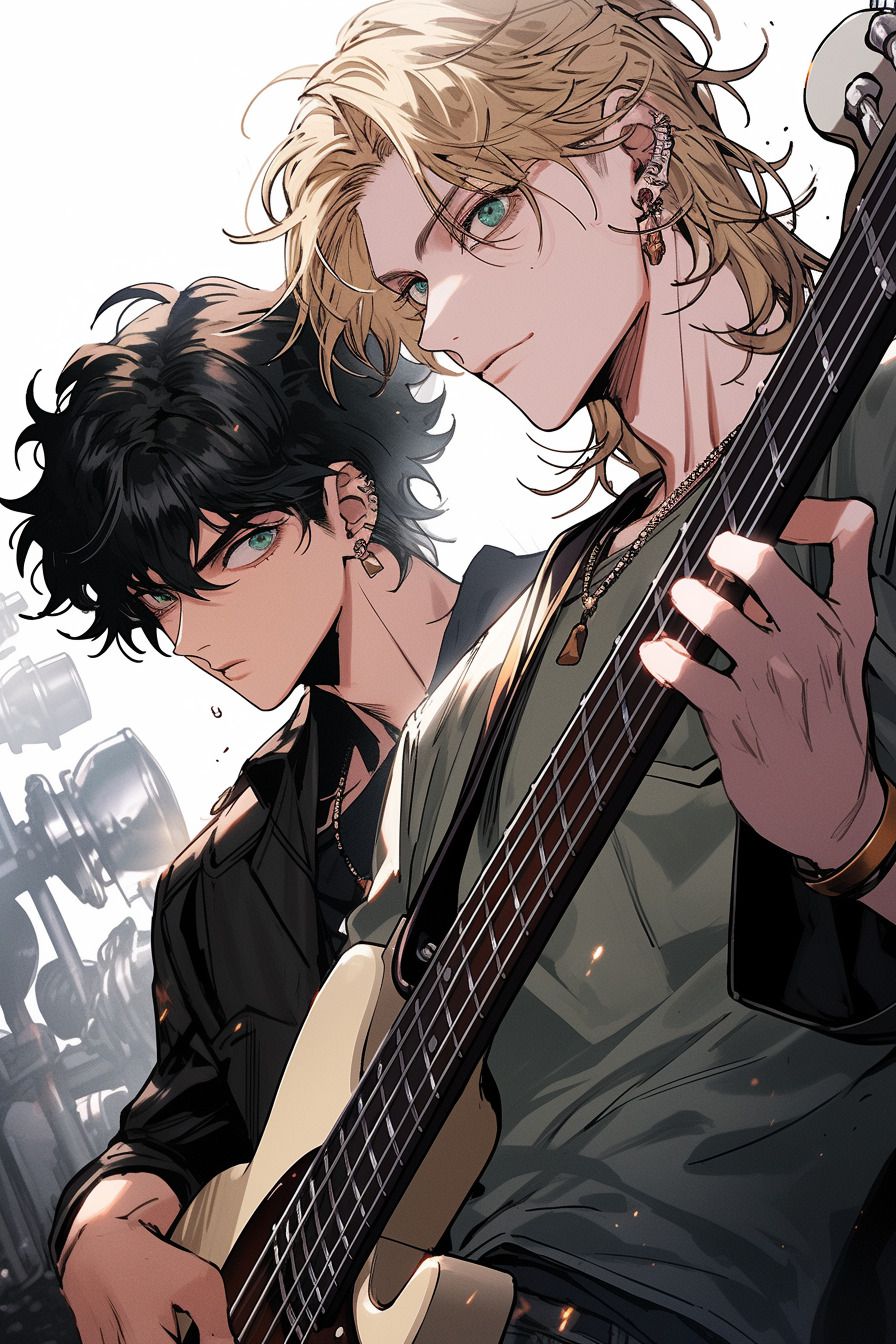Chapter 15
For two whole years, Edith Parker's parents took their silent child from doctor to doctor, but all to no avail. Speech therapy during school age is crucial, and on the doctor's advice, they prepared themselves for the possibility that Edith Parker might never speak again, accompanying him as he learned sign language.
But when Edith Parker raised his hands, he couldn't sign anything at all. He could only shed silent tears.
Because in his hallucinations, his hands were covered in blood.
On the winter solstice two years later, Edith Parker sat alone on a hospital bench. His father had gone to get the results and had been gone a long time—no matter how long he waited, he didn't return.
So he went to look for him himself, passing by the family members of patients kneeling before the attending doctor in the hallway, passing by patients eating takeout dumplings while getting IV drips alone, passing by countless human tragedies, until finally, he found his father in the break room.
His wife's grief, fruitless appeals, his son's illness—all weighed on his shoulders, leaving him exhausted, his hair more than half white, making his figure easy to recognize.
The father who always smiled in front of him was now hiding behind the water dispenser, clutching his head and sobbing.
In the silence of his lost voice, Edith Parker spent two gloomy birthdays, entered a new year, but was still just a child. Step by step, he walked to his father's side, squatted down, leaned on his shoulder, and, like his grandmother used to, gently stroked his father's tear-reddened eyes with his fingers.
“Dad... don’t cry.”
To this day, Edith Parker still doesn’t know how he managed to speak again; he only remembers his father crying even harder, so much so that he didn’t even have the strength to hold him.
But this was nothing to celebrate, because soon, more painful things came crashing down one after another, giving them no time to breathe, shattering this once-perfect family into pieces.
Sometimes Edith Parker wondered, why did it have to be their family?
Is it only by smashing beautiful things that fate’s authority becomes truly irresistible?
Losing his voice was not the only aftereffect—later, almost every time he crossed the street, standing at the crosswalk, Edith Parker would experience auditory hallucinations.
But he didn’t think it was a big problem, so he never told his already exhausted parents.
Time dragged him forward. He thought things would change once he started middle school, but found he had only stepped into a deeper abyss.
Not long after starting school, he became a victim of bullying.
The perpetrator was a third-year student, three years older than him, named Laura Brooks.
At first, it was just verbal mockery—ridiculing his undeveloped height, making fun of his unusual eyes. Later, Laura Brooks incited Edith Parker's classmates to ostracize him, throw away his books, and tear up his homework.
When Edith Parker began to resist, the conflict escalated. He was cornered in the bathroom, humiliated, and beaten.
He heard from classmates about the source of the malice: it turned out the girl Laura Brooks liked had a crush on him, which wounded Laura Brooks's pride.
And being quiet and unsociable, having outstanding grades, a body that was still too small and undeveloped, a rebellious personality... all these became reasons to be bullied.
Originally, it was just bullying, until one day, he accidentally saw the person who came to pick up Laura Brooks from school.
It was the same perpetrator from before—George Brooks, even wearing a similar floral shirt as that day.
Edith Parker couldn't stand it. He frantically chased after the Porsche on his bike, eventually crashing hard by the roadside.
The ridiculous thing was, the next day, when he stormed into the senior class like a vengeful spirit, grabbed Laura Brooks by the collar, and tried to question him, he almost lost his voice again—too agitated, he could only rasp out a few words.
“An eye for an eye! Murder...”
He would never forget the look in Laura Brooks's eyes at that moment—completely clueless, utterly confused. Laura Brooks called him a lunatic, and his followers pulled Edith Parker away and beat him up.
So he really knew nothing.
He didn’t know his father was a murderer, didn’t know what he had done to their family.
It turned out that the death of a person, something that had shattered their family’s world, meant nothing to George Brooks—not even worth mentioning to his own son.
Limping, Edith Parker walked into the infirmary by himself, gritting his teeth and vowing never to bring it up again.
Not until the day he could strike down that evil target with precision.
The bullying dragged on endlessly. School life became a black swamp, and the double burden of hatred left him trapped and alone, unable to sleep, unable to think like a normal child, sinking deeper and deeper, unable to extricate himself.
It was on an ordinary day—December 23rd, the end of his first semester of seventh grade.
That winter, Beijing had rare heavy snow. His eyes already couldn’t stand bright light, and with the snow’s reflection these days, Edith Parker's left eye became extremely uncomfortable, forcing him to wear a single-sided eye patch.
After lunch, as he left the cafeteria, Laura Brooks and his group cornered him under the multi-purpose building.
“Hiding your eyes with your hair all day—are you that ashamed of yourself?”
“Hey, do you know what a white-eyed wolf is? Your eyeball looks just like one, hahaha.”
“Short and creepy with that long hair, and now you’re wearing an eye patch—do you think being a one-eyed freak is cool? Idiot.”
A few of them grabbed his arms, and Laura Brooks walked over and kicked him in the stomach.
“What are you staring at! Stare again and I’ll blind your other eye too!”
